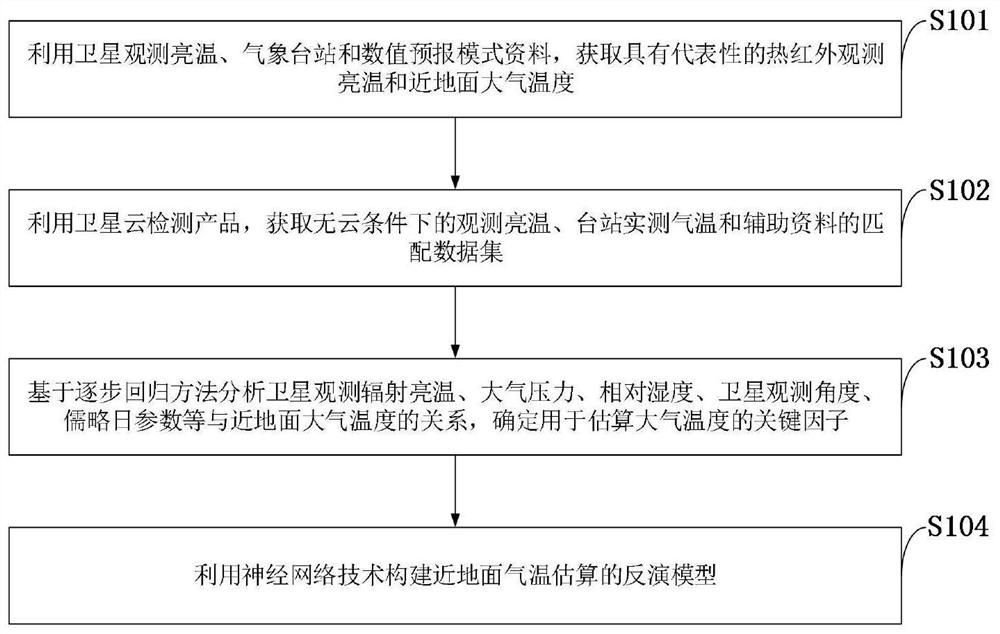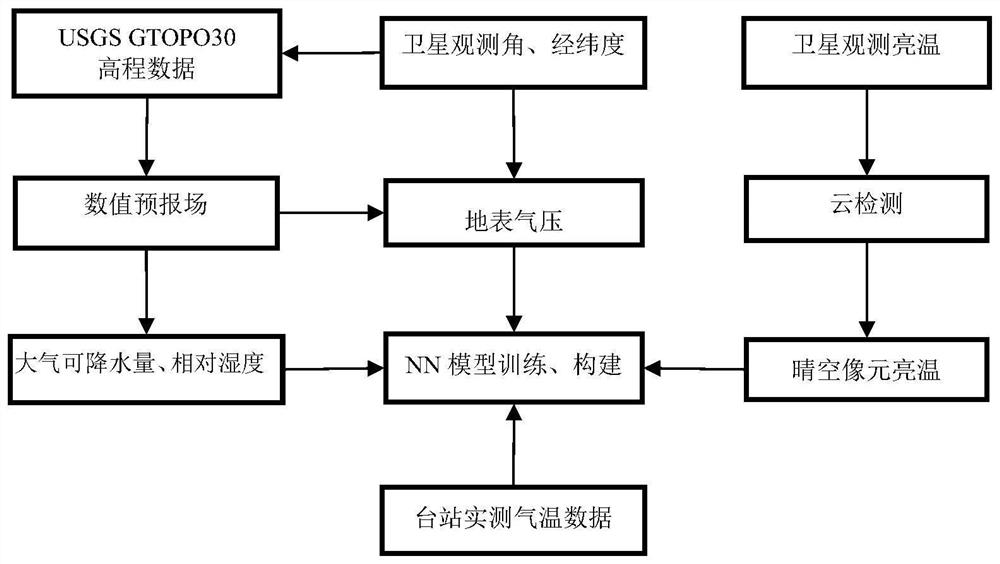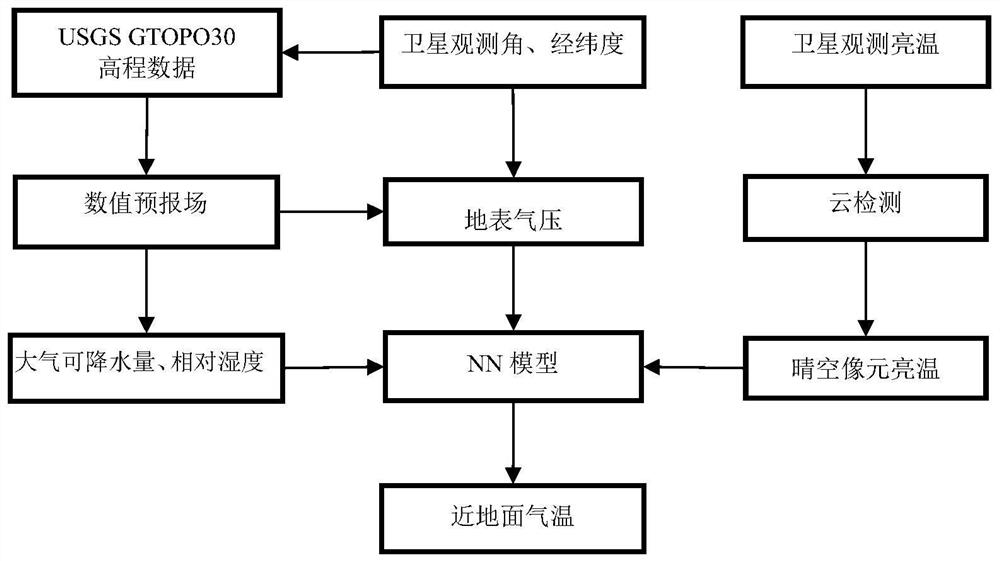A method for estimating near-surface atmospheric temperature from thermal infrared data of geostationary meteorological satellites
A geostationary meteorological satellite, atmospheric temperature technology, applied in the field of atmospheric remote sensing, can solve the problem that accuracy depends on accuracy, cannot carry out near-surface atmospheric temperature estimation, etc., and achieves the effect of good applicability
- Summary
- Abstract
- Description
- Claims
- Application Information
AI Technical Summary
Problems solved by technology
Method used
Image
Examples
Embodiment Construction
[0030] In order to make the object, technical solution and advantages of the present invention more clear, the present invention will be further described in detail below in conjunction with the examples. It should be understood that the specific embodiments described here are only used to explain the present invention, not to limit the present invention.
[0031] The invention mainly solves the method of estimating the near-surface atmospheric temperature with high time resolution by using thermal infrared data of stationary meteorological satellites under cloudless conditions. It applies to near-surface atmospheric temperature estimation from satellite thermal infrared data without surface temperature products. The present invention only needs satellite observation data and numerical forecast parameters to estimate near-surface atmospheric temperature.
[0032] like figure 1 As shown, the method for estimating the near-surface atmospheric temperature from thermal infrared ...
PUM
 Login to View More
Login to View More Abstract
Description
Claims
Application Information
 Login to View More
Login to View More - R&D
- Intellectual Property
- Life Sciences
- Materials
- Tech Scout
- Unparalleled Data Quality
- Higher Quality Content
- 60% Fewer Hallucinations
Browse by: Latest US Patents, China's latest patents, Technical Efficacy Thesaurus, Application Domain, Technology Topic, Popular Technical Reports.
© 2025 PatSnap. All rights reserved.Legal|Privacy policy|Modern Slavery Act Transparency Statement|Sitemap|About US| Contact US: help@patsnap.com



